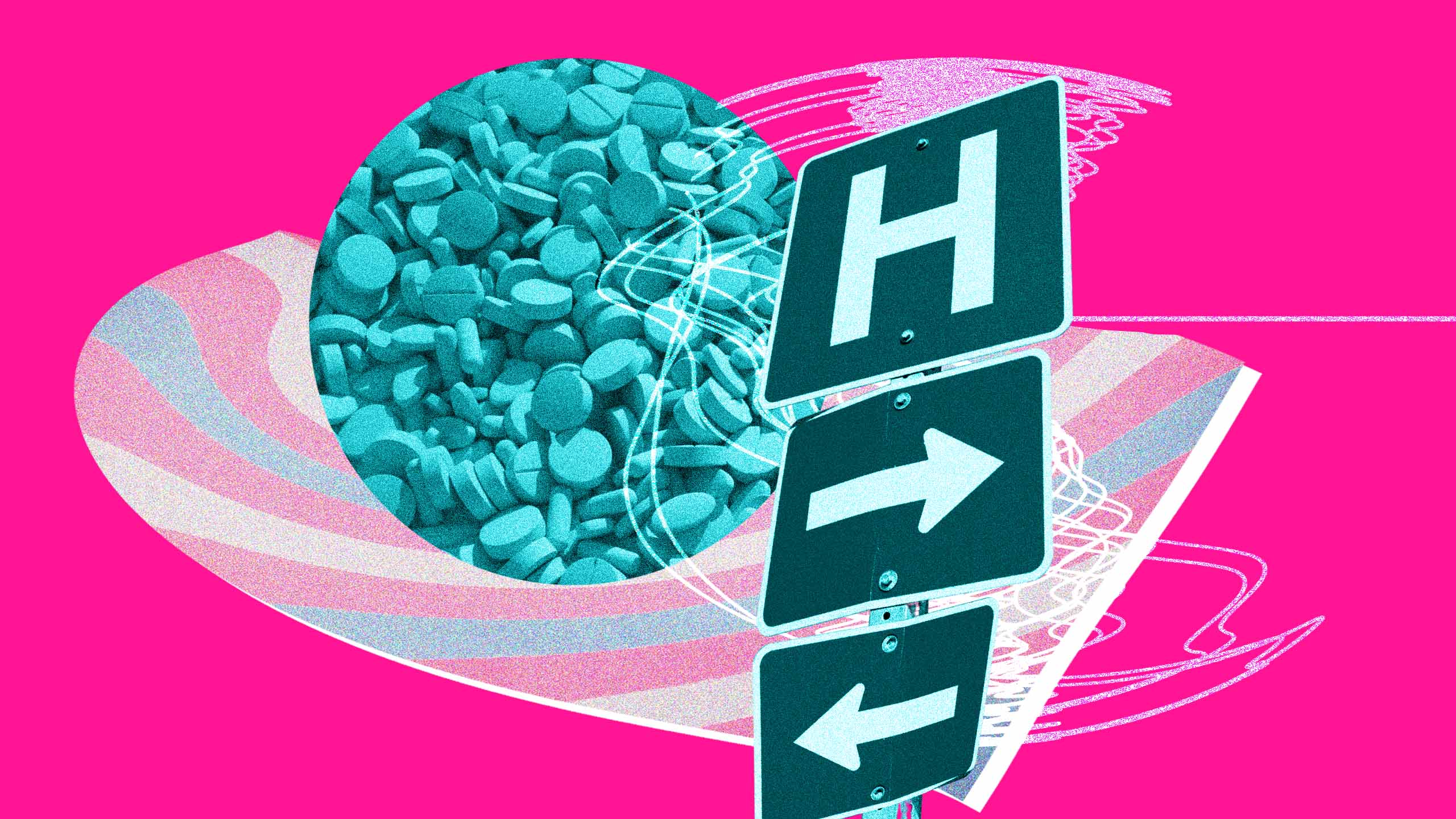Before I was diagnosed with myalgic encephalomyelitis/chronic fatigue syndrome (ME/CFS), multiple physicians blamed my symptoms on the fact that I was transitioning. Doctors proposed that hormone replacement therapy (HRT) could cause my recurring flu-like symptoms: immobilizing fatigue, vertigo and gastrointestinal dysfunction. They maintained this hypothesis even after I assured them I’d been sick long before starting testosterone.
This story is familiar among trans folks. So many clinicians have attributed unrelated health concerns—such as migraines, diabetes or physical injuries—to gender-affirming therapy that the phenomenon has a name: “trans broken arm syndrome.”
Medical gaslighting is also common for patients with ME/CFS, a poorly understood chronic disease that can follow acute viral infections and that appears in many people who have cases of long COVID. Long-haulers continue to report delayed diagnoses and outright dismissal—particularly those who are marginalized by race, gender identity and class.
With long COVID affecting an estimated 15 percent of trans folks—twice the rate of cisgender people—many patients will likely struggle with medicine’s limited understandings of trans health. The problem is not rooted in any individual doctor’s capabilities, but in a lack of provider training and dearth of existing research. Confronting trans health disparities requires an overhaul of the system: we need more extensive research into trans people’s general health and more effective treatments.
As we adapt to a world with COVID-19, health sciences professionals are asking what lessons they can draw from this devastating pandemic. Amid the restructuring, healthcare professionals have an opportunity to build a more trans-inclusive system—one that accounts for gender diversity throughout medical research, provider training and patient care.
This rebuilding needs to begin by addressing “major voids” left by prior research on trans health. Most information we have about trans health comes from studies of broader LGBTQ2S+ populations. The acronym obscures important differences within and among trans and queer communities. For example, cisgender queer people are unlikely to have their symptoms misattributed to transition-related therapies. Meanwhile, only half of trans people receive hormone therapy, and among those who seek HRT, their access is often shaped by income, race/ethnicity and gender expression.
“Most research is able to identify health disparities faced by trans people—but can’t pinpoint exactly what causes those inequities.”
A majority of studies on trans health focus only on mental health or HIV/AIDS, with only seven percent looking into general health. That means issues such as rates of diabetes or cancer in trans folks, or the effects of hormone use are vastly under-researched. The upshot is that most research is able to identify health disparities faced by trans people—but can’t pinpoint exactly what causes those inequities.
Studies on the risks of HRT vary widely in how they define and assess risk. One study reported that testosterone increased the risk of type 2 diabetes in trans men, using cisgender people as control subjects. A separate study that compared trans men on HRT to trans men without HRT, however, suggested that testosterone made no difference in diabetes risk. In other words, other facets of trans life may help explain increased rates of type 2 diabetes, but existing research has overemphasized transition therapy.
Trans health studies also frequently do not control for other relevant factors such as socioeconomic status, tobacco use or even hormone dosages. This leaves medical communities with many unsettled questions about what specific factors detract from trans health. Researchers are uncertain about what elevates rates of cardiovascular disease among trans women, for instance. While many studies have confirmed the disparity, there is far less data on how estrogen therapy interacts with other contributors to cardiovascular risk such as smoking or rampant discrimination.
Deeper research into trans health inequities would benefit everyone. Differentiating the effects of gender-affirming therapies from minority stress and other factors—which affect many cisgender people—can advance medical knowledge for trans and cis patients. Understanding the cardiovascular impact of HRT, which is prescribed to many cisgender men for testosterone deficiencies and cisgender women for menopause, could help address pressing questions about the effects of testosterone or estrogen therapy on COVID-19 patient outcomes.
To be sure, the complexities of healthcare systems and patient experiences make human medical research especially difficult. But researchers and providers of trans healthcare are especially hindered by health sciences’ neglect and misunderstandings of trans people.
Legislative attacks on gender-affirming care haven’t helped. Fear-mongering about so-called “transition regret” ignores the robust evidence supporting gender-affirming treatments. The moral panic surrounding transition has directed political and scientific energy toward reiterating the many benefits of letting people transition—rather than improving care.
Put differently, false accusations about gender-affirming care have siphoned scientific and political resources into addressing the question “should trans people exist?” when we could be committing more resources to exploring questions like, “Which factors are most detrimental to trans life?” And, “Whether it’s social exclusion or poor treatment protocols, who else can benefit from changing these practices?”
To better address these questions, medical schools and other educational institutions must develop trans-inclusive curricula and actively recruit and support more trans and gender-expansive faculty and students. These educational developments could also inform licensing requirements and continuing education programs, establishing more effective healthcare practices in general.
It took over a decade for me to find a doctor who took me seriously enough to diagnose me with ME/CFS. I spent many of those years unknowingly exacerbating an illness that doctors refused to believe I had. I spent so much time insisting with providers that discontinuing testosterone would not resolve symptoms that I’d experienced way before my transition. To receive competent care, I needed to travel halfway across the country to a specialty clinic in neuroimmune medicine. The 1,300-mile trip to a hospital that did not take my health insurance required resources that most trans people do not have—and should not need for basic care.
The COVID-19 pandemic exposed many further limitations in our healthcare systems, but it also demonstrated that swift progress is achievable through creative thinking, dedicated funding and collaborative research. Operation Warp Speed mobilized many government agencies, private companies, academic institutions and individual researchers to produce two commercial vaccines in under a year. Paxlovid, shown to reduce rates of severe COVID-19 and long COVID, was developed at a “breathtaking pace.” Predictably, however, both COVID vaccines and Paxlovid prescriptions were harder to access for people of colour and LGBTQ2S+ people, and particularly Black LGBTQ2S+ folks.
The urgency that drove governmental pushes to “return to normal” needs to apply to the ongoing suffering of trans people. Experts have been calling the rates of preventable illness and death among trans folks a “public health crisis” for years. Trans patients—who already experience higher rates of chronic pulmonary disease, kidney failure and neurological disorders—are now being ignored in the sluggish response to long COVID-19—a disease keeping as many as four million Americans out of work.
When affluent and abled people felt that their lives and livelihoods were endangered, we were capable of rapid scientific growth. Trans people and chronically ill people deserve that same care.


 Why you can trust Xtra
Why you can trust Xtra


